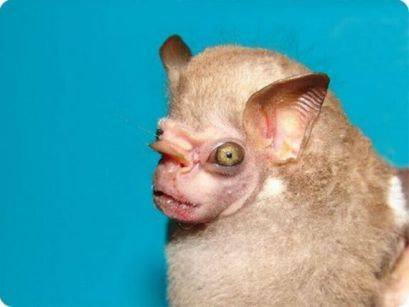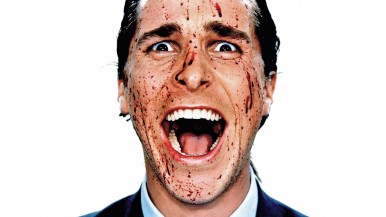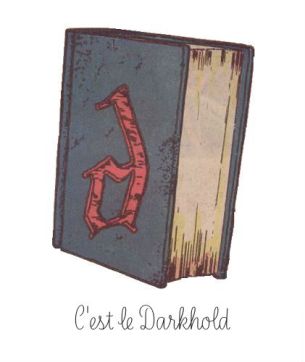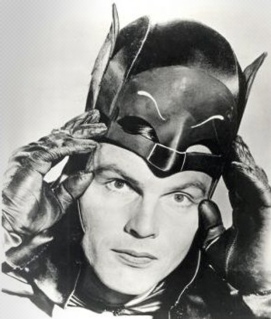Batman is a fetishist, and I don’t mean that in a kinky way (though I kinda do). Specifically, he fetishizes his parents’ death (not ‘deaths’); it was a singular event that happened right in front of him, a heavily visual moment that he relives, both in his waking hours and in his dreams. But, rather than being definitional through loss, rather than being the absence of the physical presence of his parents in his life, its most affecting manifestation is as the presence of the event of their murder, as that is the moment of the birth of the Bat in his psyche. Before it had a totem animal, there was the intentionality of, at the least, eliminating the chance to ever again be hurt so badly.
And he is never, in any prominent telling, spared the sight of their deaths; that’s essential to the fetishization, because Batman’s schtick is itself so predominantly visual. Superman can be The Blur, entirely unrecognizable, but Batman needs to be visible at least some of the time if only to make his disappearance/absence that much more ambiguous at any given moment.[1] If he learned something practical from the event of his parents’ murder, it’s the ability to so effectively shift from seemingly-absent to present–it’s the best imitation of their transition he can manage. He becomes the master of the Freudian Fort-Da game.
Why have we never considered the possibility that Bruce and Batman may actually be entirely separate personalities within the singular presence of an enduringly-schizophrenic victim of childhood trauma? The reason is that the narrative has never really given us reason to think such. In fact, if anything, I’d previously believed that there was no real Bruce left–that the murder had killed that personality and his scrambled brain had effectively produced an entirely new OS, redesigned to deal with the cruelties of the world, but still with the memories of the dead kid and his parents. Batman as a living (if you call it ‘living’), fighting testament to the Law of the Dead Father. But now that seems needlessly reductive: is psychology, of real or imagined subjects, ever so neat? Is it allowed to be, anymore? The fact is that Bruce’s memories remain, and there are considerable arguments to be made that memories are a core constituent of identity. Batman might be emergent, but he hasn’t subsumed Bruce entirely. Nor should he want to. Rubber batsuit notwithstanding, Batman’s actually a pretty practical guy. Or, maybe ‘strategic’ is more apt. He is also, by nature of his invention, the alpha male; the predominant wielder of phallic power in an entire city, close competitor with a god for command of a band of superhumans–though he, himself, is not superhuman. It’s clear that such a personality, recognizing the traumatized heir whose id he’s just bubbled up from, would also recognize that boy’s vast inheritance and the continual benefits it would provide to his mission of personally enforcing ‘justice’ and ‘decency’; so, Bruce Wayne sticks around to some degree.
The split personality thing is still an option, though, and, given the emotional rape little Bruce is fated to receive endlessly, in retelling after retelling, why wouldn’t DC have retconned him into Sybil way back?

NA NA NA NA NA NA NA NA NA! GID-GET!!!
I can’t answer for the DC staff, but, if we’re committed to considering Bruce/Bats as a legitimate, fully-realized psychoanalytical subject, capable of being so analyzed, the answer would bring us back to Batman’s innate skills as a strategist: for a personality in such possession of itself as Batman, it is clear that he is still the dominant in the psyche even if he’s not the only one present. But, were he an entirely distinct construction from Bruce, who would Batman have to surveil first and foremost but this other identity? And this would be a distraction from the core purpose of his invention, the upholding of the Law. So, assuming that the Batman aspect is both so dominant and so self-possessed that he might have had the power to establish himself as entirely distinct if he’d chose to, wouldn’t it be still more logical to not? To avoid having to watch from without when he could keep a tighter grip on Bruce from within? Is there anywhere Bruce Wayne goes that Batman doesn’t? Consider, too, the previous assertion, that the death of Bruce’s parents constitutes a presence more importantly than it initiates an absence. If they’d not died in the first place, Bruce himself would not exist as anything but himself, bringing us back to a previous problem: could we believe that ‘The Adventures of Bruce Wayne, the Psychologically-Healthy Billionaire’ would ever have been so culturally successful or meaningful? Was ‘Ritchie Rich’ ever so much of a thing?
So, Bruce is basically a priest, serving at the altar of his dead folks, living up to their absence, making it meaningful across a city and population he now also largely owns.[2] This is probably why he doesn’t have a ‘Lois Lane’ or ‘Mary Jane Watson’[3]; he doesn’t need to worry so much about reproducing his own genes, as he’s been tasked with reproducing (his version of) his parents’ ethos more directly.

And I’ll dress up as a big ol’ bat, just to make it fun for the kids!
Sure, there’s Alfred; he acts as a father figure for Bruce, making sure that the boy ‘grows up right’. But, the boy grew up to apply way too much eyeshadow, and without even the respectable pretense of going to a drag show, so it would seem that Alfred isn’t really empowered to do much more than serve in his capacity as caregiver and housekeeper. Though Alfred might or might not have managed the business while Bruce was a kid[4], he’s not himself a Wayne, so any command he might have had over large-scale resources is limited in scope and expires entirely when Bruce takes over; meanwhile, the orphan can despondently stare out his window at the skyscrapers punctuating the Gotham skyline, but, somewhere, the bat knows that a good portion of those phallic symbols and all the infrastructure that supports them–literally, financially, and politically–only wait to serve as material in his mission. It’s seen time and again that the Bat considers Wayne holdings in his plans largely for their strategic value, with very little regard for, for example, employees who might be put out of active work if a facility was felled as collateral damage in a fight. Granted, Dawn of Justice’s trailer points up the plot angle that Batman wants to punch Superman because of the destruction wrought on his own friends[5] at a Wayne building during Man of Steel, but isn’t this really just the little bit of plot-fuel, the dash of logical premise we need to get us to that next, big, city-destroying battle this film has promised? At that rate, how legitimate is that one display of human concern versus the uncountable times in the innumerable stories when Batman has been exactly as calculating and heartless as he’s so popular for being? Consider JLA’s ‘Tower of Babel’ storyline (Waid, 2000), in which it’s revealed that Batman has drawn up detailed plans for how to defeat all of his comrades on the Justice League. Not a stupid maneuver by any means, but that doesn’t lend any heart to the cold sentiment, the underlying fact that Batman treats his allies the same way he very probably treats everyone; as a potential enemy, as a target whose fulfilment, whose value for him, may ultimately only lie in its eventual elimination.
That might be taking things a little far, but fetishizing is, itself, the act of taking things a little far, and we’ve already established that Bruce deifies his parents… like, a lot.[6] Batman is, as a material manifestation, the enforcer that will always keep Bruce, the chief purveyor for the execution of the holy order, in check. And, since we’ve already gone so far as to relate such a convoluted psychology to religious structures, what is religion but a type of governance? And what type of governance–over a city, over a company, over one’s own personality–have we seen evidenced in Batman’s story so far other than facism? It’s ironic that, in at least a few of the instances where conflict between Superman and Batman has been showcased, Superman has been the one more closely associated with oligarchy while Batmen across the multiverse are so consistently dedicated to personal liberty. Miller (1986) painted Superman as a shill for the Reagan Administration. Snyder’s trailers show armed stormtroopers sporting armbands with the ‘S’ shield. Millar’s Red Son (2003) presents a Soviet Superman who struggles with a threat of communist totalitarianism he represents but does not embrace. Injustice: Gods Among Us (2013) explores how dark our own Superman might turn if he lost someone sufficiently close to him. In all of these, though, Batman is cast as a freedom fighter, quite contrary to the micromanagerial (read: megalomaniacal) style that’s served him so well as ‘The Detective’.

NA NA NA NA NA NA NA NA NA! BATE-MAN!!!
If anything, in an ideological debate between Bats and Supes, Supes would be in the corner of personal liberty, if only because he can’t not be and still be able to relate to anyone. While everyone may constitute some level of threat for Batman, Superman–being effectively indestructible and, thus, unable to relate to the normal human condition in a major, potentially-stifling way–is compelled, instead, to deal with people on interpersonal terms, to communicate under circumstances where his own physicality is so overwhelming as to be always insufficient. And what does Superman have to gain by taking control of anything in a ‘world of cardboard’ that he doesn’t possess already? He’s got the girl, after all. Surely, if there were anything that were really more important to this mensch with a god’s body than his own ideals–as opposed to the interdicts that Batman both enforces and fears the judgement of–he’d have taken it by now since there’s no one to stop him. But he hasn’t because he is exactly that: liberal, newsreporting Clark Kent, gifted with ever-expanding powers, but always retaining his own, Kansas-grown ethics. It’s why, anymore, he’d be as much of an alien on Krypton as any other Earthling. On the other hand, what would we fear from Batman if he were given one of the single most potentially destructive weapons in modern fiction: a Kryptonian body? Do we really trust that, given such potential to reshape his own world, to eliminate so many threats, Batman would be able to stay Batman for long? For, how could it ever end at simply stamping out crime when he would need to protect, perhaps even more fiercly, that world in which the change finally was effected–that ‘perfect’, ‘decent’ community.
So then: Is capitalism all that stands between Batman and The Full Castro?
Find out in to our next episode!
Same Bat-time!
Same Bat-channel!
(Not really. All done with this.)

I’m rich, bitch!
[1] Which is more intimidating: a camera that you know is always on, or one that could be on or off at any given moment?
[2] I might be overstating in the absence of any canonical ‘facts’, but Wayne Industries is, if nothing else, a major owner of manufacturing and processing properties in the heavily-industrialized Gotham and so, by logical extension, a major employer in the city.
[3] Catwoman is a whooole ‘nother article. On point!
[4] Usually, it’s not indicated that Alfred has anything to do with the affairs of either the company or the estate during this period, but we also don’t get any regular indication that anyone else is doing any of it, either.
[5] Death surely isn’t the only misfortune an employee can suffer on the job–or from an employer–but Batman’s concerns for Wayne staff aren’t often articulated in any finer strokes.
[6] He practically lives in a cathedral. Or, rather, in the Batcave, which is a cathedral under Wayne Manor, another cathedral. Or maybe the Manor is a tomb (for the womb) and the Cave is a grave. But such interpretive options only make the core association with religiosity that much more evident.




 o, I randomly wrote a script for an issue of the Batman comic. This is in no way authorized nor endorsed by DC and I have no plans to make any money from it (unless someone at DC reads it and wants to hire me–in which case, screw academia: gimmie that money!).
o, I randomly wrote a script for an issue of the Batman comic. This is in no way authorized nor endorsed by DC and I have no plans to make any money from it (unless someone at DC reads it and wants to hire me–in which case, screw academia: gimmie that money!).


